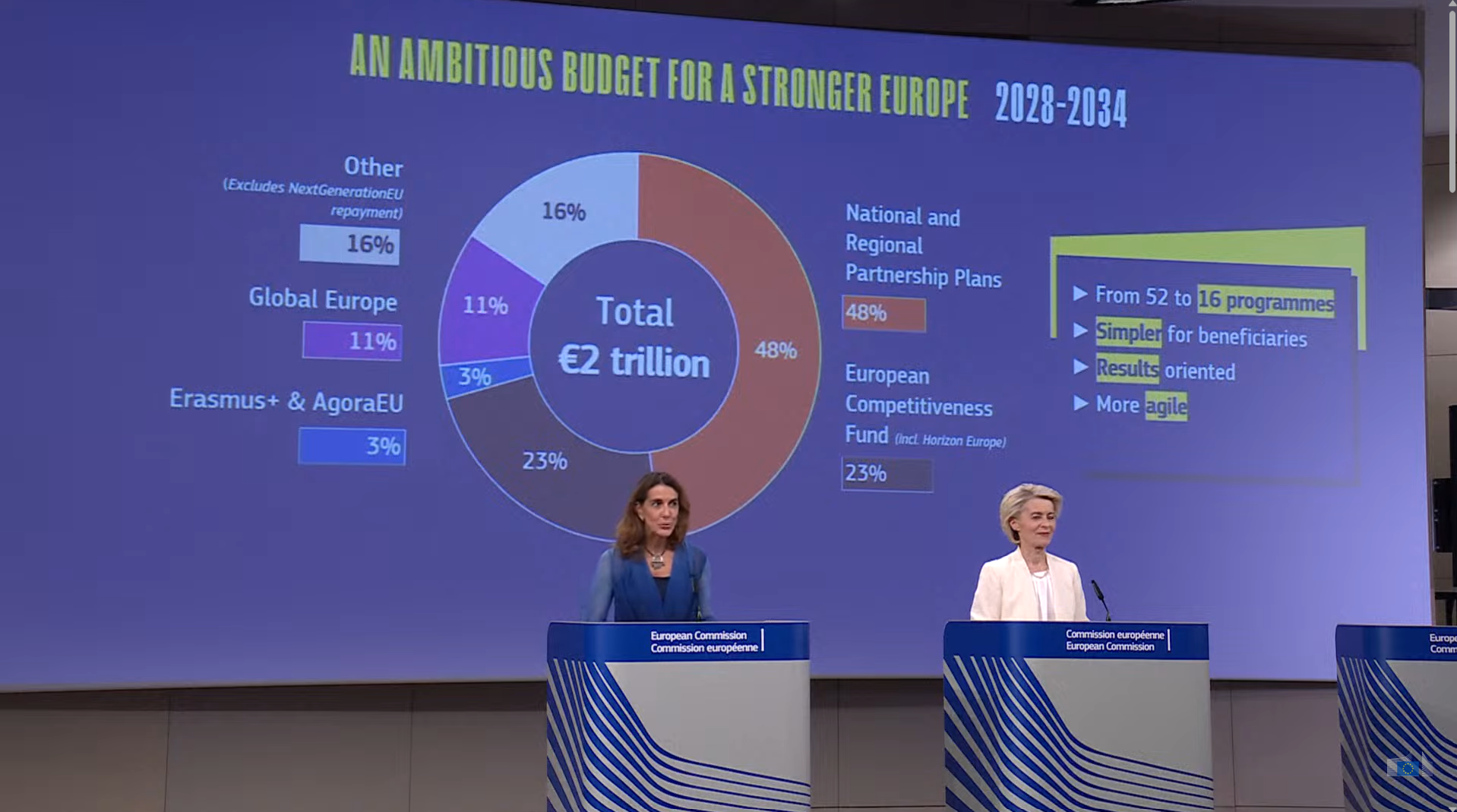On 16 July 2025, Ursula von der Leyen, President of the European Commission, unveiled the long-awaited proposal for the Multiannual Financial Framework (MFF) of the EU (2028-2034). With an almost doubling of the Horizon Europe funding programme’s (or FP10) budget to some EUR 175 billion, the announcement is ambitious in scope while also pushing for a focus on competitiveness and impact.
The MFF is a long-term budget which in essence sets out the annual expenditure that can be spent on various policy areas. Crucially, it includes the allocated budget for the EU’s research and innovation capacities (from Horizon Europe to the European Research Area to other funding programmes such as the European Innovation Council). President von der Leyen’s proposal for the MFF amounted to almost EUR 2 trillion, with a new European Competitiveness Fund, worth EUR 409 billion covered within that overall budget. The new fund will ‘‘invest in strategic technologies, to benefit the entire Single Market, as recommended in the Letta and Draghi Reports. The Fund, operating under one rulebook, and offering a single gateway to funding applicants, will simplify and accelerate EU funding and catalyse private and public investment’’.
The next version world-renowned Horizon Europe funding programme, still being referred to as FP10, will be closely tied to the new fund, and would, under the Commission’s proposal, amount to EUR 175 billion. President von der Leyen recognised the importance of the EU’s flagship funding programme, stating that ‘‘it is already a big programme, it is one of the most renowned programmes we have worldwide, the most renowned scientific research programme. We will double it”.
The programme will feature a four-pillar structure (Excellence, Innovation, Competitiveness & European Research Area), and although many details are still under wraps, the proposed structure suggests more space for basic science, stronger support for innovation, and renewed efforts to attract top talent to Europe.
At META Group, we expect that the Commission’s push for more funding will also go hand-in-hand with a focus on increased impact. That could mean a doubling down on exploitation strategies, stronger ecosystems, and a sharper focus on market-ready results.
The figures provided during the announcement are far from final and the subsequent negotiations between the Commission, the European Parliament and Member States will shape the final version of the MFF overall. One thing however is clear: the direction set forth by the Commission underlines that the EU’s competitiveness starts with research and innovation.
Read the European Commission Press Release here.
For an overall picture of how other institutions and the scientific community have reacted, Science Business has this article here.

